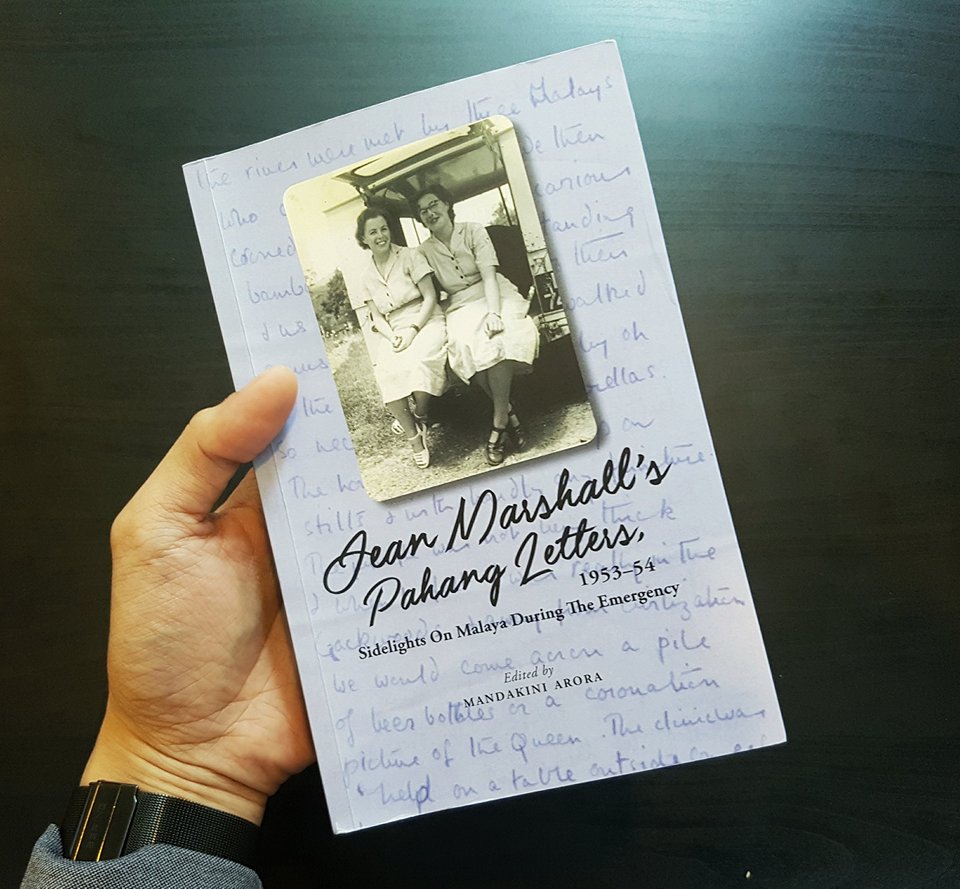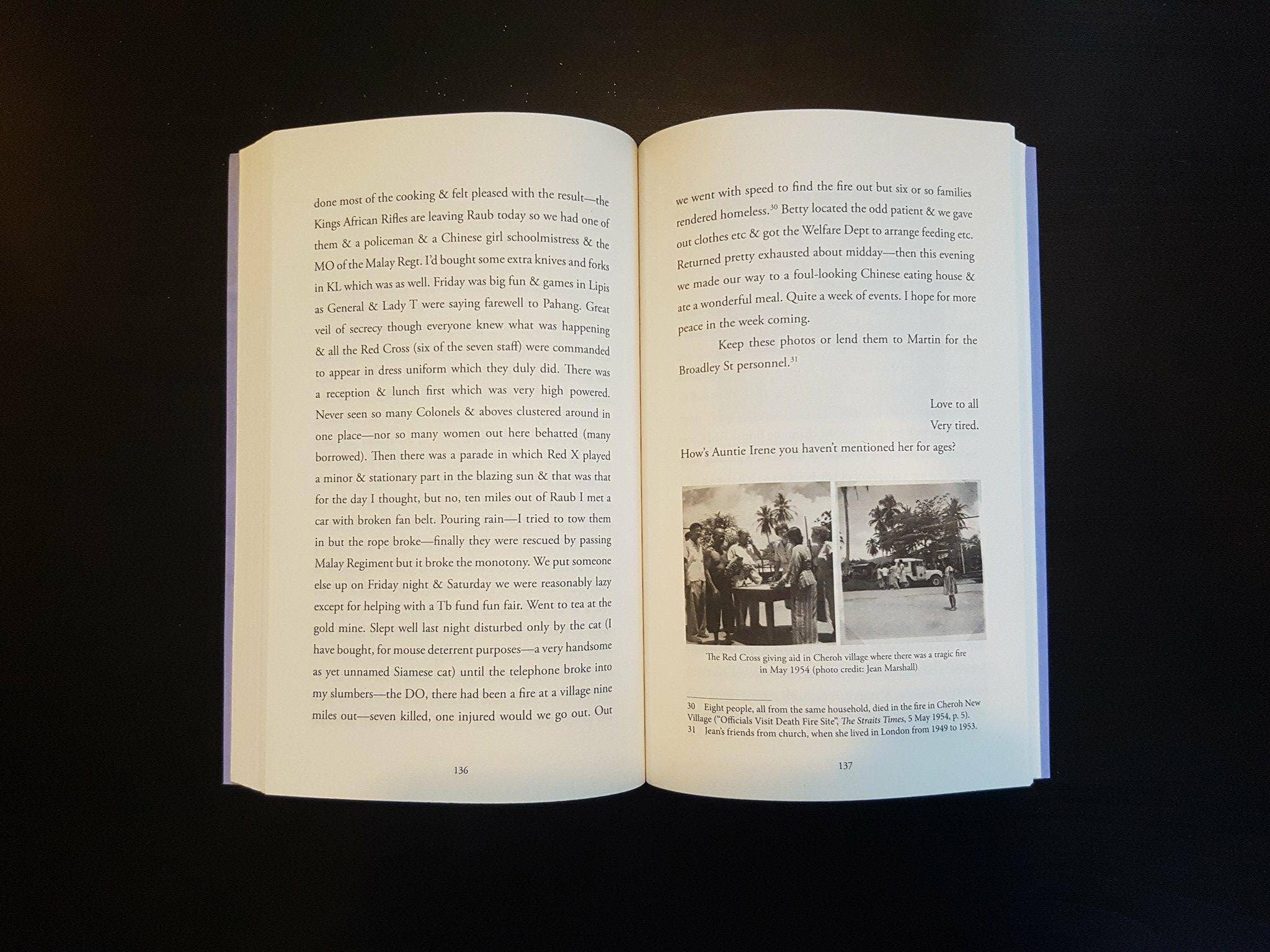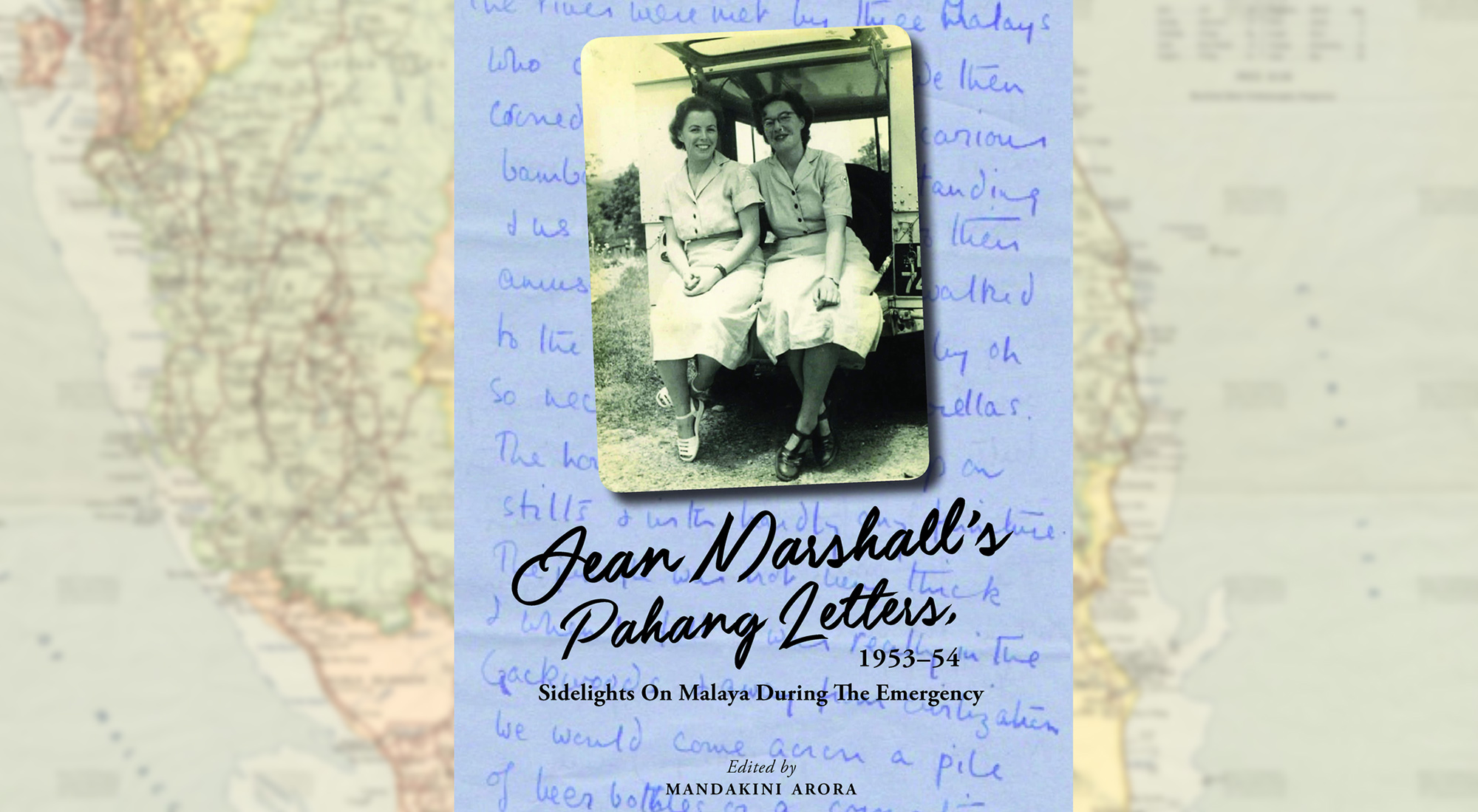The late David Marshall stands tall as a pioneer in Singapore's political history but much less is said about his wife, Jean Marshall (née Gray).
Recently published Jean Marshall's Pahang Letters 1953 - 1954: Sidelights on Malaya during The Emergency pulls back the curtains on life during Emergency-era Malaya through the eyes of the then 27-year-old Red Cross worker.

Jean was posted to Pahang in September 1953 as a field officer handling the social problems of patients and training other Red Cross workers.
What was the Emergency?
The Emergency was a period of guerrilla fighting between Malayan communists and Commonwealth forces from 1948 to 1960.
Throughout the Malayan peninsula, the Emergency was categorised by violence, strikes, arson, and assassinations, culminating in 8,000 deaths and wounded personnel.
Google 'Malayan Emergency' today and you'll find results from war museums and memorials highlighting the violence and rightly so.
However, given that the Emergency was spread across 12 years, there was a certain life and rhythm that people settled into and this was brought out in Jean's letters.
A steady rhythm while under siege
Perhaps it was the fatigue from three years of Japanese Occupation, but Jean's letters written during her one-year deployment painted a semi-leisurely, semi-quiet Malayan life, with some semblance of normality.
To be fair, the book's editor, Mandakini Arora, wrote that Jean's letters to her parents were meant to be assuring and left out details that were unnecessarily worrisome.
But reading through her accounts of movies, weekend hair perms, and social gatherings it almost feels like an intimate peek into a life that wouldn't be too out of place today, more or less.
Witty accounts
A lot of it is helped by Jean's immense wit.
Her self-deprecating humour lifts her letters above mere accounts of what she ate and where she went in the day, while her ability to find humorous silver linings in tough situations lends a burst of optimism to her stories.
"I felt like an Early Pioneer one day this week when we visited a Malay village some way out.....Just where one felt that here was a spot where Never Before Had White Woman Trod, there would be a pile of very civilised beer bottles or a Malay house with a Coronation picture stuck on the outside!"
In another letter to her parents, Jean candidly wrote that she was going to 'starve for the rest of the day in preparation' for a Chinese dinner she was invited to.

Barely scratched the surface
Not much is said about the actual Emergency though, since her time there spanned only a year, aside from fleeting mentions about New Villages (resettlement camps), and military and police presence.
It's therefore a pity that we do not get to read more in-depth first hand accounts of her encounters with the military or of civilians caught in the middle of the fighting.
In all, Mrs Marshall's letters read like indulgent re-caps of her 'adventures' in a foreign land.
While she was, as painted by Arora, a 'critical observer' outside the colonial social hierarchy, her observations barely scratched the surface.
You can find Jean Marshall's Pahang Letters 1953 - 1954: Sidelights on Malaya during The Emergency at Ethos Books.
Top images via Ethos Books and NAS.
Here are some totally unrelated but equally interesting stories:
Mums share their experience in helping their kids go cashless
Shell created a quiz to help me find my ideal city and I didn’t get Singapore
This guide to interacting with persons with disabilities will make you a better person
If you like what you read, follow us on Facebook, Instagram, Twitter and Telegram to get the latest updates.
